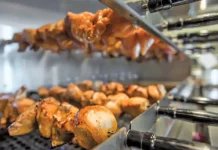
Understanding your employees’ rights is paramount to protecting your business. According to the Equal Employment Opportunity Commission (EEOC), the federal agency enforcing laws prohibiting employment discrimination, EEOC received 61,331 charges of employment discrimination during this period in 2021.
Retaliation continues to be the most frequently filed claim included in charges with the EEOC with 56% of all charges involving a retaliation claim1. After retaliation, the EEOC reports a high number of disability, race, sex, and age claims.
From discrimination to wrongful termination, employment practice claims can carry a heavy price tag when businesses fail to have the right risk management procedures and insurance coverage in place. It’s impossible to prevent all lawsuits. However, you can take mitigating steps to reduce your business’ risk and high cost associated with employment-related lawsuits through the following best practices:
1) Create policies and procedures.
The first step and most important step is to create and implement concrete policies and procedures. Make sure that there are specific ways and means to address common on-the-job issues that could lead to a lawsuit. For instance, policies addressing hiring, promotions, evaluations, changes in status, training, harassment, and termination should all be considered. It is not about eliminating all employee questions, but instead about making sure that the employer and employee expectations meet reality. The best way to institute formal policies and procedures is to work with a seasoned employment law attorney to ensure that you’ve covered all your bases as an employer.
- For many employees, the employer/employee relationship is an at-will one, meaning it can be terminated with or without cause by either the employee or their employer. The employee handbook will become the closest thing that the employer and employee have to a contract, which is why it is so vital. An employee handbook is the best way to identify and outline the rights and policies.
- Make sure the handbook is a living, breathing document that is updated, reviewed and revised with counsel at least annually, as each year there is new case law, new legal issues that may not have ripe case laws and new considerations that should be included in the employee handbook. It is important to have each employee sign the handbook to show they are aware of and agree to the policies and procedures inside.
- Insurance companies follow claims and litigation trends so they ask a lot of questions in their underwriting process. Documented policies and procedures will enable you to examine exclusions or risks specific to your business and their impact/defense as it relates to employee liability. Working with an experienced broker will ensure all liabilities unique to your business are considered.
- When you’re getting employment practice insurance or renewing it, the question to ask is: do you actually have the necessary policies and procedures in place to ensure defensibility?” You’ll have to prove yourself each time you get insurance by providing information about past claims and what remedial actions were taken.
2) Document it.
Keep a written log of disciplinary and absentee issues, complaints and anything that falls under HR’s jurisdiction.
- This documentation will serve as the first line of defense should an employee discrimination claim be filed against you, as you’ll have written proof of what happened with a disgruntled employee along the way.
- If you have to defend an employee termination, for example, based on their absenteeism, you’re going to have to build a case and documentation is going to be key. You’ll need to be able to say: the employee was 50 minutes late, 20 times and provide the dates and specifics.
3) Understand third-party risks.
Look at your risks from a third party standpoint. Consider the legal ramifications of your vendors, clients, customers, potential employees, and more being a potential liability. Make sure whoever is interfacing with third parties is trained and understands employment practice risks so they don’t cause a liability that could lead to an employment practices claim.
4) Know your recourse as an employer.
Employees aren’t the only ones that have legal recourse to file a claim. Employers (especially when they hold workers’ compensation policies through private insurers) have recourse as well. Employers have rights and shouldn’t be afraid to speak up if there’s a fraudulent claim and more. Make sure you have a conversation with your claims adjusters both before and during a claim to determine what your rights are as the employer.
5) Retain a comprehensive Employment Practices Liability (EPL) insurance policy.
An employer is more likely to have an employment practices liability insurance claim than a general liability or property loss, according to studies conducted by the Professional Liability Underwriting Society. A good broker will determine which EPL policy is right for your business and, in the event of a claim, help you amend your policies and procedures for successful renewal.
Any business can be the target of a potentially devastating lawsuit. Safeguard your business against any employment-related risks through the best practices describes and comprehensive EPL insurance protection.
1. https://www.eeoc.gov/statistics/charge-statistics-charges-filed-eeoc-fy-1997-through-fy-2021























